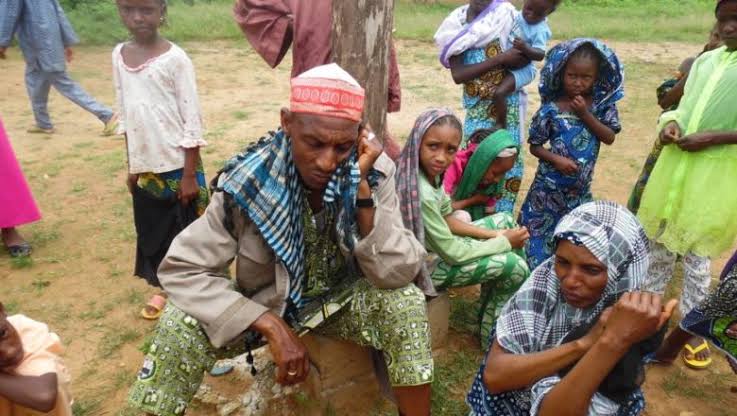Ngarbuh Massacre: Human Rights Watch Commends Cameroon’s Admission, Calls For Justice

Human Rights Watch (HRW), an international non-governmental organisation that conducts research and advocacy on human rights, has commended the Cameroonian government for taking “an important first step” regarding the killing of 21 civilians in Ngarbuh in Northwest Cameroon Region.
The Central African country had set up a Joint Commission of Inquiry to investigate the event that took place on February 14, 2020, where government forces and armed militia killed at least 21 civilians, including 13 children and one pregnant woman.
The commission said on Wednesday that five armed separatists and 13 civilians were killed during an exchange of fire with security forces and members of local vigilante groups. It also accused the military of trying to cover up what happened by burning homes and filing a false report.
In a statement released on Friday, HRW said although the commission’s findings had shortcomings, “it is an important first step toward justice for these serious crimes.
“But this report should not be a stand-alone action. A more in-depth investigation is needed to establish a clear timeline of events and to identify all those responsible, including anyone further up the chain of command, for the purposes of prosecuting them,” HRW’s Central Africa Director Lewis Mudge wrote.
“The government’s decision to release the commission’s findings is hopefully a signal of an end to denying and hiding the truth around abuse.
“We are optimistic that this is a new opening to work with the government as an independent collaborator to end abuse by both state and non-state actors,” the group stated.
It noted that the government’s statements conflicted significantly with its extensive independent research, which was corroborated by other organisations, including the United Nations.
“The attack in Ngarbuh was not an isolated case, but part of a larger pattern of serious human rights violations by the Cameroonian security forces in the Anglophone regions.
“Human Rights Watch has documented multiple abusive counterinsurgency operations by the security forces in the North-West and South-West regions since 2017,” it said.
The group urged Cameroon’s government to make the full report of the commission public so that it would be easy to understand how it arrived at its conclusions.
According to HRW, members of the Rapid Intervention Battalion and “armed ethnic Fulani killed 21 civilians in Ngarbuh, burned five homes, pillaged scores of other properties, and beat residents”.
It said witnesses and residents of the community denied that there was a confrontation between armed separatists and security forces as claimed by the commission.
They rather said that “the killings were deliberate and aimed at punishing the population accused of harbouring and supporting separatists, HRW stated.
“The news release on the Joint Commission’s Inquiry also highlighted President Paul Biya’s assertion that the government remains ready to work with human rights organizations,” HRW said.
“This [however] stands in stark contrast to recent government actions. On April 12, 2019, officials at Douala international airport refused to allow the Human Rights Watch senior researcher on Central Africa to enter the country, even though she had a valid visa. Despite numerous requests for information, no explanation was ever provided for denying her entry,” the organisation stressed.
Support Our Journalism
There are millions of ordinary people affected by conflict in Africa whose stories are missing in the mainstream media. HumAngle is determined to tell those challenging and under-reported stories, hoping that the people impacted by these conflicts will find the safety and security they deserve.
To ensure that we continue to provide public service coverage, we have a small favour to ask you. We want you to be part of our journalistic endeavour by contributing a token to us.
Your donation will further promote a robust, free, and independent media.
Donate HereStay Closer To The Stories That Matter




